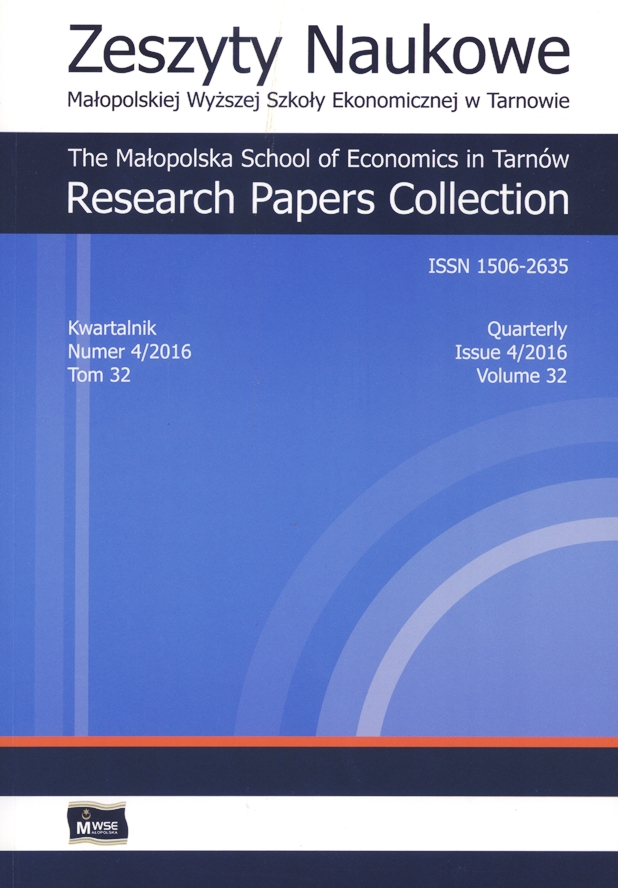Abstract
In the last years, the world has been witnessing a succession of events resulting from misconduct by various decision-makers. This awareness has led schools to adopt in their curricula subjects with content in the area of ethics and similar. With the present research, on the one hand, it was tried to verify whether the teaching of ethics is present as a discipline in the courses taught in institutions of higher education. On the other hand, it is also intended to verify the expressiveness of he discipline of ethics in the curricula of the courses, in comparison with other disciplines that are taught in those courses. The present study focused on a Portuguese higher education institution, and the data collection was carried out with resources to the technique of content analysis. The results allow us to infer that the expressiveness of the teaching of ethics is reduced, being the teaching of the discipline, within each course, oriented to the area of professional ethics.
References
Bardin, L. (1995). A análise de conteúdo. Lisboa: Edições 70. ISBN 9724408981.
View in Google Scholar
Bennis, W. G., O’Toole, J. (2005). How business schools lost their way. Harvard Business Review, 96–104.
View in Google Scholar
Business Social Responsibility [online, accessed: 2016-11-30]. Retrieved from: https://www.bsr.org/en/about.
View in Google Scholar
Carroll, A. B. (1991). The pyramid of Corporate Social Responsibility: Toward the moral management of organizational stakeholders. Business Horizons, July–August, 39–48.
View in Google Scholar
De George, R. (1992). Ethics and Worse. Financial Times, 3 July, 12.
View in Google Scholar
Donaldson, J. (1991). Ethics in European business: A casebook. London: Academic Press Ltd.
View in Google Scholar
European Business Ethics Network [online, accessed: 2016-11-30]. Retrieved from: http://www.eben-net.org/?q=content/our-mission.
View in Google Scholar
Fligstein, N. (1990). The transformation of corporate control. Cambridge, MA: Harvard University Press. ISBN 9780674903593.
View in Google Scholar
Freeman, R. E., Gilbert Jr. D. E. (1988). Corporate Strategy and the Search for Ethics. Englewood Cliffs, NJ: Prentice Hall. ISBN 0131754726.
View in Google Scholar
Graafland, J., Smid, H. (2012). Impact Measurement and Performance Analysis of CSR (IMPACT), work package 2 (WP2): Econometric Analysis. European Commission’s 7th Framework Programme, www.csr-impact.eu.
View in Google Scholar
Joyner, B. E., Payne, D. (2002). Evolution and implementation: A study of values, business ethics and corporate social responsibility. Journal of Business Ethics, 41, 297–311.
View in Google Scholar
Knoch, M. (2004). A importância do estudo da ética no ensino superior: Uma reflexão epistemológica. Interacções, 7, 81–99.
View in Google Scholar
Raiborn, C. A., Payne, D. (1990). Corporate Codes of Conduct: A collective conscience and continuum. Journal of Business Ethics, 9, 879–889.
View in Google Scholar
Solomon, R. C. (1997). It’s good business: Ethics and Free Enterprise for the New Millennium. Lanham, MD: Rowman & Littlefield Publishers, Inc. ISBN 9780847688043.
View in Google Scholar
Trevino, L. K. (1992). Moral reasoning and business ethics: Implications for research, education, and management. Journal of Business Ethics, 11, 445–459.
View in Google Scholar
van Luijk, H. J. L. (1990). Recent developments in European business ethics. Journal of Business Ethics, 9 (7), 537–544.
View in Google Scholar
Velasquez, M. G. (1999). Business ethics: Cases and concepts. Englewood Cliffs, NJ: Prentice Hall. ISBN 9780205017669.
View in Google Scholar
Vogel, D. (1992). The globalization of business ethics: Why America remains distinctive. California Management Review, 35 (1), 30–49.
View in Google Scholar
© Copyright by Małopolska School of Economics in Tarnów. The articles are available under the Creative Commons Attribution NonCommercial-NoDerivatives 4.0 International License


